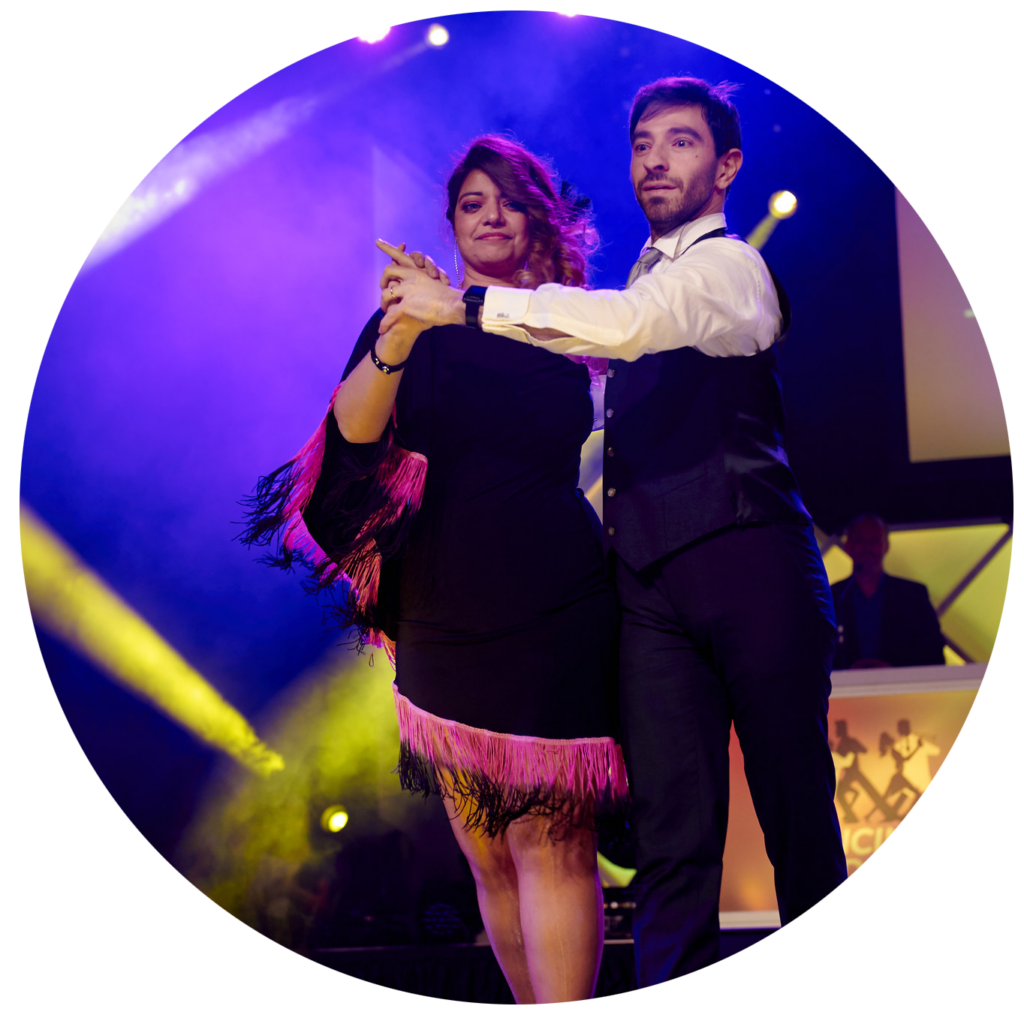
Dr. Carolyn Nessim is a Surgical Oncologist at The Ottawa Hospital, as well as a Clinician Investigator at the Ottawa Hospital Research Institute (OHRI).
Before arriving at our hospital in 2013, her training took her from Montreal to Toronto and even as far as Melbourne, Australia. While she specializes in soft tissue sarcoma, melanoma, and gastric cancer, her expertise is wide-ranging as she collaborates with other researchers in addition to treating patients.
Dr. Nessim also has rhythm. In 2018, she was one of a handful of physicians who competed on the dance floor in front of a sold-out crowd of 800 for Dancing with the Docs, a fundraising event that raises funds for patient care and research at our hospital.
Q: When did you realize you wanted to become a doctor? How did you end up in oncology?
A: I have wanted to be a doctor since I was seven years old — it’s as if it was a calling. In my 20s I had a personal health scare, and the nicest doctor took all my fears away with a simple conversation. I remember thinking, “I want to do that for people too.” By my second year of surgical residency, I knew I wanted to specialize in oncology. I was fascinated by the complex tumours and surgeries and new therapies that were changing the face of cancers, but more importantly, I was moved by the relationship that develops with patients and how rewarding the work is. I’m often asked why I chose cancer because people assume it must be so sad. But on the contrary — it is a privilege. To cut is a chance to cure and patients unconditionally trust us to take care of them.
Q: What is the most interesting thing you have learned during your time as a surgical oncologist?
A: For patients we cannot cure we still provide support and empathy through a difficult journey, so I believe we still help in those cases as well. No one lives forever, but how we live our journey is what will make the difference, so I believe in hope and positive thinking.
Q: What innovations have you seen in the field of oncology since you started?
A: The role of immunotherapy in cancer is revolutionary. It’s a type of treatment that boosts your immune system to fight off the cancer. Although it does not work in all cancers, for others it has turned metastatic patients that used to die within six months to now live for 5-10 years and beyond. It has taken decades to perfect and in 2018, it won the Nobel Prize.
Q: What is The Ottawa Hospital doing in oncology that is exciting or groundbreaking?
A: I have done some translational clinical research with Michele Ardolino, Jean-Simon Diallo, and Luc Sabourin at the Ottawa Hospital Research Institute to better understand the genetics and biology of both melanoma and sarcoma and how they respond to oncolytic viruses or why they resist to immunotherapy. It’s very exciting work.
Q: You helped uncover Bryde Fresque’s diagnosis of a rare pheochromocytoma, why was this diagnosis a challenge?
A: In Bryde’s case, he had a spontaneous rupture which led to a large hematoma that hid the underlying tumour on imaging. Also, most pheos release adrenaline which you can detect in a 24-hour urinary test, but Bryde’s was non-functional making the urine tests negative. These factors made the diagnosis more difficult to make. Eventually we could see a mass on the imaging, and it was clear the only next best step was to remove it.
Q: The surgery he needed to save his life was incredibly complex, lasting 12 hours. Explain why.
A: The tumour was quite large —over 20cm — and very inflamed because of the bleeding. His tumour was also attached to several organs which required what we call a multi-visceral resection en bloc (removal of organs that are touching). This takes time as it involves very careful dissection of large vessels that we do not want to injure. We removed Bryde’s tumour en bloc with the kidney, adrenal, spleen, distal pancreas, colon and diaphragm and then reconstructed the diaphragm and colon. Most sarcoma surgeries take anywhere from 5-24 hours. Some can take even longer — over 48 – hours.
Q: What makes rare cancers, like pheochromocytomas such a challenge to diagnose and treat?
A: The reason rare cancers are hard to treat and diagnose is because we need more investment in research. Also, the rarer the cancer the less we are able to run large randomized clinical trials, because there are so few patients. We need more international collaboration for rare cancers to increase the number of patients to better understand these diseases and how to manage them. In the last ten years, we have created an international research collaboration for sarcoma called the Trans-Atlantic Australasian Retroperitoneal Sarcoma Working group of which I am the Chair of the Research Evaluation Committee. This has made a huge difference in sarcoma research. It includes experts from around the world designing research studies and clinical trials and it will change the face of sarcoma research.
Q: What is the most gratifying part of your role as a surgical oncologist at The Ottawa Hospital?
A: My relationship with my patients. It is the best thing ever. I am inspired by their strength, motivation, and humility. Being even just a small part of their journey is the most fulfilling and gratifying part of my job and pushes me out of bed every morning to come to work.
Q: In your opinion, how important is support from the community in advancing cancer research?
It is very important. If there were more awareness and more community support, we could expand our research and study more about diseases like rare cancers.

